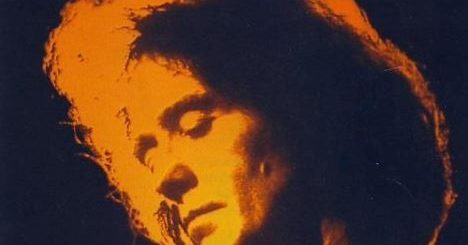Alone Again (Naturally) by Gilbert O’Sullivan Lyrics Meaning – Unveiling the Melancholy of Existence in a 70s Classic
Lyrics
If I’m not feeling any less sour
I promise myself to treat myself
And visit a nearby tower
And climbing to the top
Will throw myself off
In an effort to make clear to whomever
What it’s like when you’re shattered
Left standing in the lurch
At a church where people saying
My God, that’s tough, she stood him up
No point in us remaining
We may as well go home
As I did on my own
Alone again, naturally
To think that only yesterday
I was cheerful, bright, and gay
Looking forward to, well, who wouldn’t do
The role I was about to play
But, as if to knock me down
Reality came around
And without so much as a mere touch
Cut me into little pieces
Leaving me to doubt
Talk about God in His mercy
Who, if He really does exist
Why did He desert me?
And in my hour of need
I truly am, indeed
Alone again, naturally
It seems to me that there are more hearts
Broken in the world that can’t be mended
Left unattended
What do we do?
What do we do?
Alone again, naturally
Now, looking back over the years
And whatever else that appears
I remember I cried when my father died
Never wishing to hide the tears
And at sixty-five years old
My mother, God rest her soul
Couldn’t understand why the only man
She had ever loved had been taken
Leaving her to start
With a heart so badly broken
Despite encouragement from me
No words were ever spoken
And when she passed away
I cried and cried all day
Alone again, naturally
Alone again, naturally
In the midst of the glam and gloss of the 1970s music scene, Gilbert O’Sullivan delivered a ballad that peeled back the layers of human sorrow with a gentle, yet piercing, clarity. ‘Alone Again (Naturally)’ resonates with the haunting familiarity of a private journal entry, publicly shared and universally understood.
The song dips into deeply personal pools of thought, traversing heartbreak, abandonment, and existential questioning. It is an audible confidante, capturing the complexities of the human condition through O’Sullivan’s candid lyrical poetry and melancholic melody.
The Tower of Desolation: A Leaping Point for Understanding
The ear-catching opening stanza immediately introduces listeners to the song’s protagonist at their most vulnerable, contemplating suicide from a nearby tower. This imagery is raw and powerfully unsettling, a stark contrast to the era’s upbeat anthems. Here, the tower stands as a beacon of despair, a symbol for the isolated heights of human suffering.
Beyond its literal interpretation, the climb signifies an internal journey, grappling with the immensity of emotions tapped by rejection. It’s a confrontation with an inner abyss, an attempt to articulate the incommunicable essence of heartbreak.
Bright Yesterday, Black Today: The Sudden Swing of Fate
Nostalgia paints the portrait of a person once ‘cheerful, bright, and gay,’ drawing a line between past happiness and present pain. O’Sullivan masterfully captures the abruptness of change, how suddenly the play of life can take a tragic turn, leaving one to question the very foundation of their reality.
The song suggests that sorrow can be a silent force, as silent as the ‘mere touch’ that shatters a once-complete picture of life. Each phrase touches on the fragile nature of human hope, emphasizing the fleeting nature of joy and the enduring weight of sorrow.
Divine Abandonment or Mortal Misunderstanding?
Amidst personal anguish, ‘Alone Again (Naturally)’ does not shy away from theological quandaries. The singer wrestles with the notion of a benevolent deity, juxtaposing his own sense of desertion against the concept of divine mercy. This bold questioning of faith in a time of crisis provides a universal resonance that goes beyond the individual experience.
Philosophical and profound, the song connects individual heartache with the broader, age-old human struggle to find meaning in the face of suffering, challenging listeners to contemplate their own beliefs and experiences with divine solace — or the lack thereof.
The Resonating Reverberations of Memorable Lines
Certain lines from the song etch themselves into the consciousness of anyone who hears them. Phrases like ‘In an effort to make clear to whoever, what it’s like when you’re shattered’ and ‘Alone again, naturally’ serve as a chorus for the lonely, the broken-hearted, becoming a mirror reflecting their deepest sorrows.
O’Sullivan’s words have an uncanny ability to capture immense emotions with simplicity and precision, a lyrical quality that allows the song to transcend time and remain poignant for listeners old and new.
The Haunting Echo of ‘Naturally’ Confined by Society’s Norms
The song’s recurring endnote, ‘naturally,’ carries with it an air of resignation that speaks volumes. It’s as if O’Sullivan is implying that the state of being alone is an inevitable part of the human experience, a conclusion drawn as much from personal trials as from observing the norms of society.
This saddening acceptance acts as a haunting refrain, a reminder of society’s sometimes cold shoulder towards the pains of the individual soul. ‘Alone Again (Naturally)’ captures the notion that perhaps in solitude, despite its bitterness, there lies a blunt truth of self, waiting to be acknowledged and accepted.







